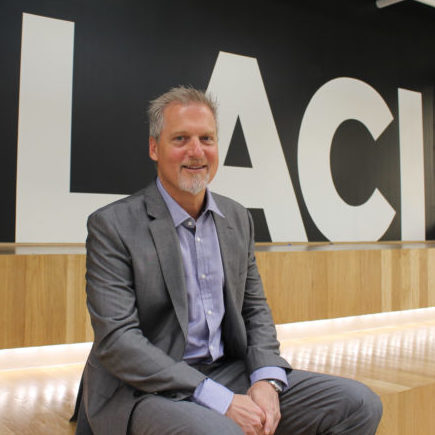

There is a palpable fervor in the air of Los Angeles that promises to change the way Angelenos conduct business and live our lives. We’re not talking about the remaining days of our nation’s political stage, but the industry of innovation that is booming here in Los Angeles.
In September, the second annual Los Angeles Techday was held, and the activity on the convention floor was reminiscent of the intensity found at the New York Stock Exchange.
Historically, Los Angeles has lagged behind other markets like Silicon Valley and New York City in the area of innovation and new tech startups. But with room to grow and LA’s importance as a global center, the City of Angels is poised to be the next big thing in the industry of innovation, and leading the way is the Los Angeles Cleantech Incubator (LACI).
In 2011, Mayor Antonio Villaraigosa announced that the City of Los Angeles would set out to be a leader in the green economy and developed LACI to play an important role in accelerating the commercialization of clean technologies from the area’s universities, as well as from independent inventors and entrepreneurs. Five years later, LACI officially opened their offices at the brand-new La Kretz Innovation Campus, on a 3.2-acre property owned by DWP.

On October 7th, with much fanfare and excitement, the staff and management of the Los Angeles Cleantech Incubator (LACI) invited the public to the grand opening and official ribbon-cutting ceremony of their new La Kretz Innovation Campus in the heart of DTLA’s dynamic Arts District. Even before they officially opened their doors to the public, the team working under the solar-paneled roof had already achieved key accomplishments within the industry of innovation. For the second consecutive year, LACI was ranked in the top-10 of university-affiliated incubators, this time #3 in the world, by UBI Global. It was also the top-ranked cleantech incubator on that index.
So what exactly is the LA Cleantech Incubator? Quite simply, it is a joint venture between government and industry that leverages technology and the resources of Los Angeles to develop private startup enterprises creating products and services that will advance the City’s initiative to be a leader in the green economy.
In doing so, several goals of the City are met, including over 1,150 green jobs created, cleaner air and water, improved water conservation, increased renewable energy usage (LA is #1 in the US with 20% usage), increased recycling efforts (LA has the highest rate of any major US city), and 60 LACI portfolio companies have attracted more than $78 million in invested capital, generating $230 million in long-term economic value. All of this in just five years, working out of a much smaller, refurbished bus repair terminal. No wonder the team was so excited on opening day of the La Kretz Innovation Campus. If they can achieve all of this from a small garage in just five years, imagine what they can do in their new 60,000-sq.-ft., state-of-the-art facility.
“Innovation begets innovation and we now work in a world-class innovative space,” states Fred Walti, President & CEO of the Los Angeles Cleantech Incubator. Walti says the La Kretz Innovation Campus design is pushing the envelope with Leadership in Energy and Environmental Design (LEED) and sustainability. LACI has the country’s first public UV greywater solution and the energy created from its 175 kilowatt solar farm feeds into LA’s first public microgrid system, providing energy to the building and inspiring future microgrids for homes and businesses.

Mayor Eric Garcetti, Fred Walti, President & CEO of LACI & Former Mayor Antonio Villaraigosa at LACI / La Kretz Grand Opening, October 7, 2016
A growing segment in the industry of innovation are creative work spaces with support staff and classroom training, as well as ‘maker spaces’, or prototyping labs, for entrepreneurs and inventors to easily develop working models of their product concepts. The La Kretz Innovation Campus answers this marketplace need and beyond. The facility features office space and amenities for LACI’s burgeoning cleantech portfolio companies to utilize as they grow and develop their businesses. The Campus features collaborative workspace, an Advanced Prototyping Center (including a 3D printing and laser shop, water jet center, electronics, robotics lab, chemistry lab, assembly bay and a training center), a 125-person amphitheater and event space, in addition to LADWP laboratories for both Customer Engagement and Energy Efficiency Technology, and the Case Study Home showcasing energy and water saving products as well as rebates and services available to LADWP customers, among other features. The innovation marketplace is so strong that LACI’s business model has inspired a similar non-profit venture to set-up shop in Old Town Pasadena in 2017 focusing primarily on automotive design.
LACI helps manage the La Kretz Innovation Campus, recruiting entrepreneurs, organizations and community thought leaders focused on the region’s clean energy sector to rent space and develop businesses within the building. The shared-space design allows emerging cleantech portfolio companies and LADWP engineers to work side-by-side with leaders in innovation and environmental sustainability, receiving guidance and mentorship as they develop new technologies that both grow Los Angeles’ economy and promote sustainability amongst Angelenos.
In partnership with the City’s exceptional academic and research organizations – UCLA, USC, Caltech and Jet Propulsion Laboratory – LACI helps accelerate the commercialization of their clean technologies in addition to accelerating new products developed by independent entrepreneurs. LACI is a result of the Clean Tech Los Angeles (CTLA) alliance among the Mayor’s office, the City’s universities, the Los Angeles County Economic Development Corporation, the Los Angeles Business Council, the Los Angeles Area Chamber of Commerce, LADWP and the CRA/LA.
Prototyping Solutions All In One Place
Purple Platypus, the Southwest platinum reseller to Stratasys, the largest 3D printing solutions company, has partnered with LACI. As the exclusive 3D printing sponsor of the new additive manufacturing center inside the La Kretz Innovation Campus, Purple Platypus is committed to providing advanced 3D printing technology, tools, and support to LACI and its customers.
“We are thrilled to be a part of LA’s cleantech hub and looking forward to the collaboration with LACI in promoting an innovative culture across Southern California,” says Mark Swart, CEO of Purple Platypus.

Mark Swart, CEO of Purple Platypus
LA Cleantech members have complete access to the additive manufacturing center, which features both FDM (Fused Deposition Modeling) and PolyJet 3D printing technologies. Additionally, they have access to a wet lab, electronics lab, CNC shop, and welding shop – all under one roof.
Members of the facility are encouraged to utilize the additive manufacturing center as a place to be innovative, develop prototypes, share design concepts with colleagues, and experience 3D printing demonstrations. This world-class facility also gives Purple Platypus a centralized location in Los Angeles to hold seminars, workshops, and meet with customers to discuss real-life applications in a professional environment.
The Broad Range of 3D Printng
Purple Platypus also has their own 3D printing service bureau, Purple Porcupine, for big companies who need 3D printing beyond their own 3D print capabilities, as well as providing service to individual inventors and entrepreneurs. The uses of 3D printing are very broad. There are many applications that are functional in the industrial world, and creative in the design world. Clients from design, entertainment and medical industries benefit from the high-resolution, color, multiple-material output and use a technology known as PolyJet. The other side of the coin is known as FDM (Fused Deposition Modeling), and is used more for building jigs or tools which can be easily replaced when the older tool needs to be decommissioned; these features appeal to their more industrial clients like aerospace and defense. Most 3D printing falls into one of these two functions and Purple Platypus will service these needs and do it very effectively.
Purple Platypus has worked with major hospitals where they have sent over a CT scan of a patient’s lung and made a 3D print utilizing rubber material. The surgical team is then able to perform a pre-operation on the 3D model which is very cost effective, less obtrusive and much safer than traditional lung operations that don’t benefit from visualizing the procedure. Their 3D printers have been used for the prototyping and manufacture of medical devices, as well as used in the courtroom where legal counsel needs to illustrate complex medical terminology to a jury who may not be savvy with medical aspects of the case.
Aerospace is another key industry which uses their 3D printing technology. When aerospace companies have a part they need to fabricate, it could cost upwards of $100,000 if the part is made using conventional methods like aluminum cast, sand casting or injection molds. 3D printing that same part is simple and would provide significant savings on cost and production time. Once a 3D CAD file is uploaded, the machine programs itself and is able to slice the part up into layers to prepare it for print, in the terms of $100 to $2000, and with a quick turn-around time of a few days, or even a few hours.
3D printing impacts so many sectors and has advanced the technology of aerospace & defense, architecture, automotive, commercial products, consumer products, dental, medical, academic and entertainment industries.
3D Printing Forum at La Kretz Innovation Campus
To kick-off the release of the new Stratasys J750, the world’s first full color multi-material 3D printer, and the Objet1000 Plus, the world’s largest multi-material 3D printer, Purple Platypus partnered with LACI and Stratasys to bring an exclusive 3D printing forum right into the heart of Los Angeles.
Attendees witnessed new leading-edge products in person, held beautifully printed full-color parts in hand, and heard it from Stratasys technologists on how 3D printing has improved their design cycle with untouchable versatility and uncomplicated workflow.
For more information on LACI and its programs, email info@alaincubator.org, go to newlaci.staging.wpengine.com or call (213) 358-6500.
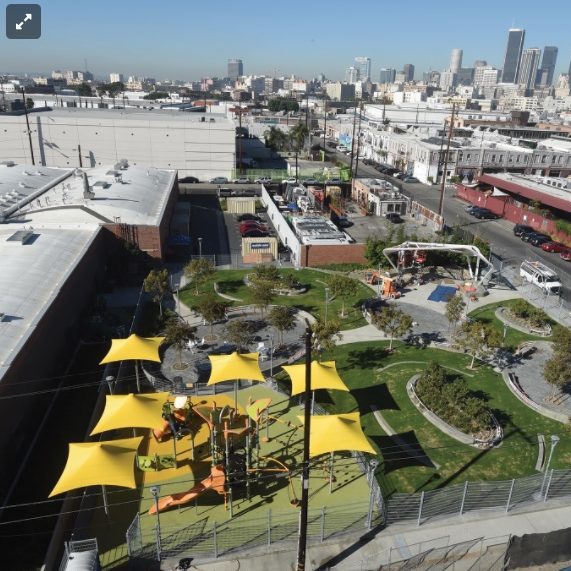

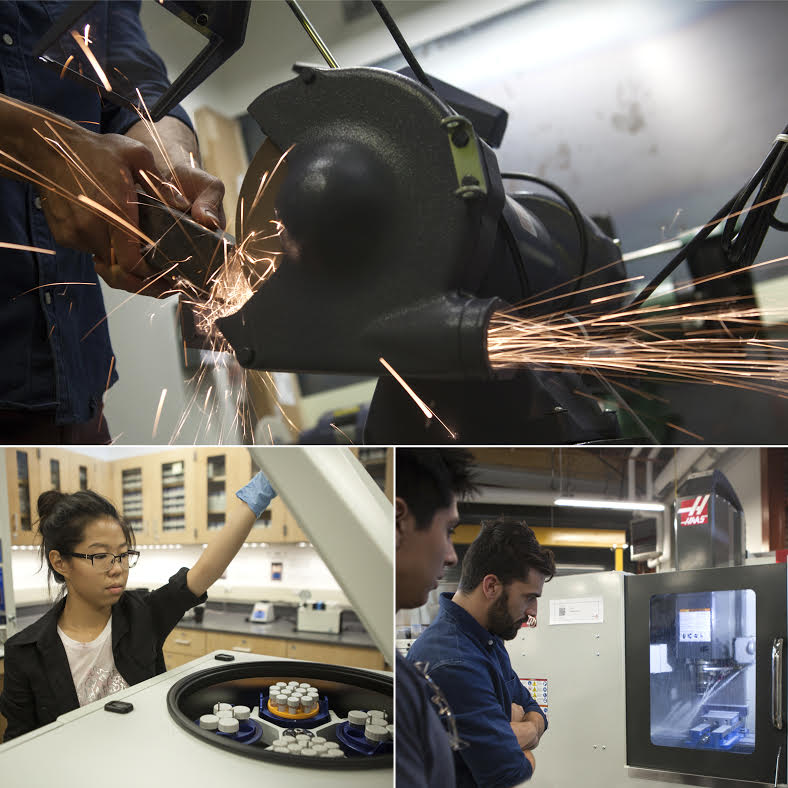

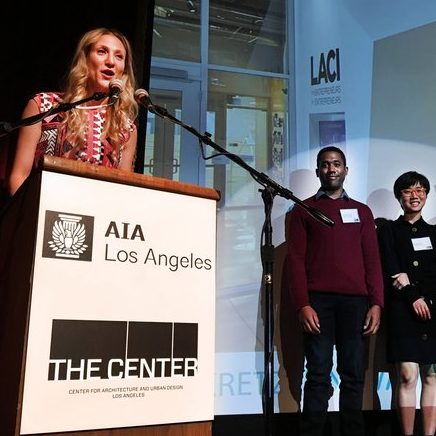








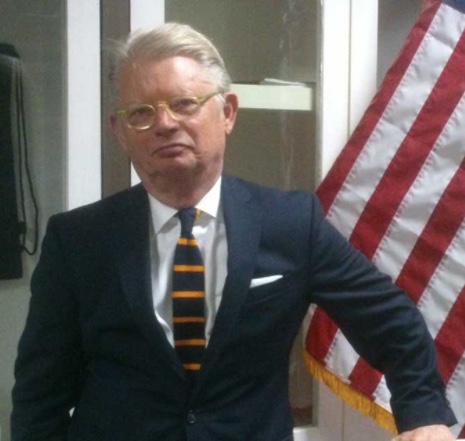

 Silicon Dragon’s Salon features an evening of venture talk with investors, tech chats with entrepreneurs, pitches by founders, networking, food and drink
Silicon Dragon’s Salon features an evening of venture talk with investors, tech chats with entrepreneurs, pitches by founders, networking, food and drink